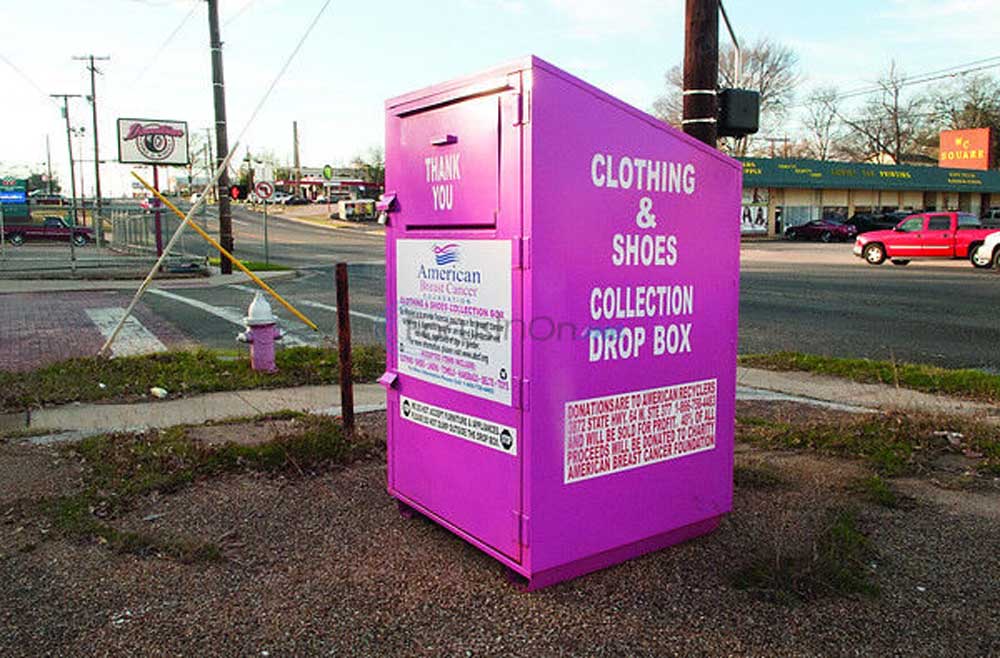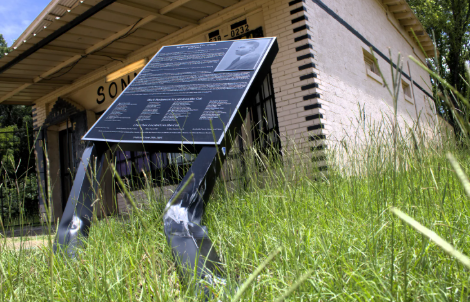Donation containers now required to be permitted in the city of Tyler
Published 6:06 pm Wednesday, January 27, 2016

- A clothing and shoes donation box is pictured in the parking lot of Egg Roll Express on Front Street in Tyler. (Sarah A. Miller/Tyler Morning Telegraph)
Bright pink donations containers have popped up in parking lots across the city, prompting Tyler officials to look at their permitting rules for all donation containers.
On Wednesday, the Tyler City Council approved updates to the Unified Development Code to require permitting for the containers. The code essentially is the rulebook for development activity, including regulation related to zoning, permitting and subdivisions.
Trending
The city estimates there are 25 to 30 of those pink containers inside the city limits.
Complaints about the prolific containers and their proximity to the roadway, possibly obstructing views of traffic, prompted the city to evaluate its codes.
Some of the complaints center on the pink containers, because they benefit a for-profit business. The front of the containers state they are donation sites for the American Cancer Foundation, but verbiage on the side states donations are sold for profit, with 40 percent of proceeds donated to the charity.
Greg Molidor, with the nonprofit Arc of Texas, said the organization had 30 donation bins in Tyler at one time, but that number has dropped to 12. He believes the rise of the pink containers is part of reason for the decline.
The organization advocates for the rights and self-determination people with intellectual and developmental disabilities and gets a portion of its fundraising from donation containers.
“We want some kind of permit process also to address all these boxes,” he told council Wednesday morning. “They are everywhere. It looks like a bunch of Pepto Bismol bottles everywhere.”
Trending
The updated rules would apply solely to bins that collect reusable items, such as clothing, electronics or household items – whether operated by a nonprofit organization or for-profit company. It would not apply to recycling bins or to donation bins for schools or churches.
Excluding for-profit donation bins from the city could open Tyler up to lawsuits, Planning Director Heather Nick said.
For and nonprofit sectors will be treated the same under the new code. Each will have to abide by the same regulations, for placement and permitting. The sole exception is that nonprofits can have the permit fee waived. Ms. Nick said that practice is common for other permits in the city.
“I know we have to be real fair, but I have a problem with groups coming from outside our city when we have people doing work here,” Council Member Darryl Bowdre said. “Code enforcement has enough on their plate, but I’m going to help them.”
Donation bins will now require a special use permit. Initially, a 90-day permit would be issued for $35. Following that period, owners would be eligible to renew the permit annually for $35.
Tyler will allow one container per acre, up to four. Contains must sit on paved surfaces and will not be allowed in to take up required parking spaces. They cannot be placed between the edge of streets and have to be at least 50 feet away from a residential property. They also cannot be placed in a buffer yard between other properties or in a landscaped area.
The bins must also have signage prohibiting people from leaving items outside the container on the ground.
Violators of the code could pay a fine.
The rules would be slightly different for the Broadway Square Mall, which leases out spots for five donation containers.
Ms. Nick said the city would work with the mall on its containers.
“The mall would be treated differently,” she said, adding the planning department would work with them on an amended site plan. “They are not going to be limited as much as other areas, because of the nature of the mall.”
Tyler resident Robyn Dadig, a retired nurse, thanked the city for enacting the codes, which go into effect on Friday.
“I thank you for the permitting process,” she told council Wednesday. “I would like to see some reduction in the number of these particular (containers), which have grown faster than some of the bacteria we deal with at the hospital.”
Twitter: @TMTFaith






